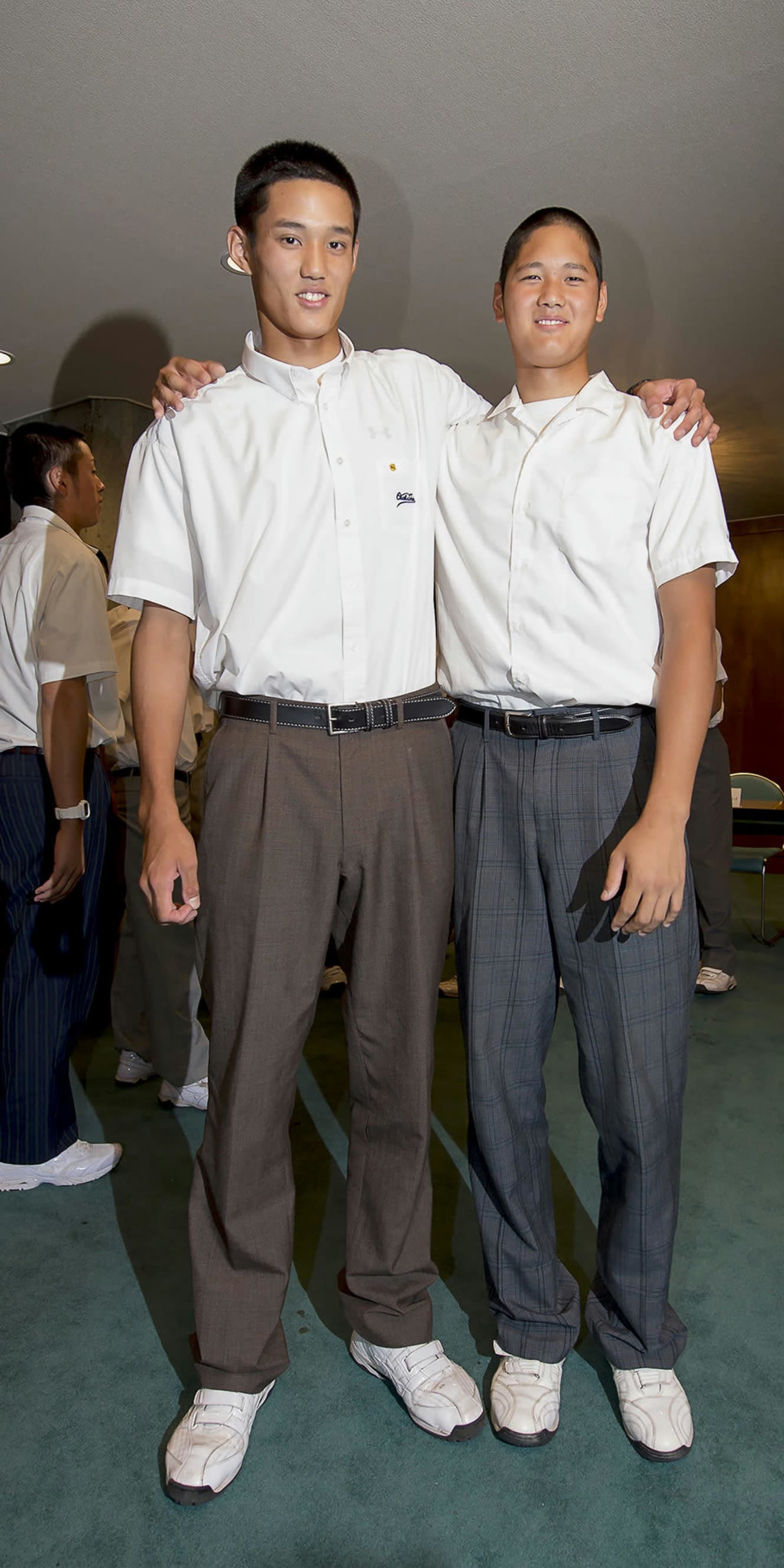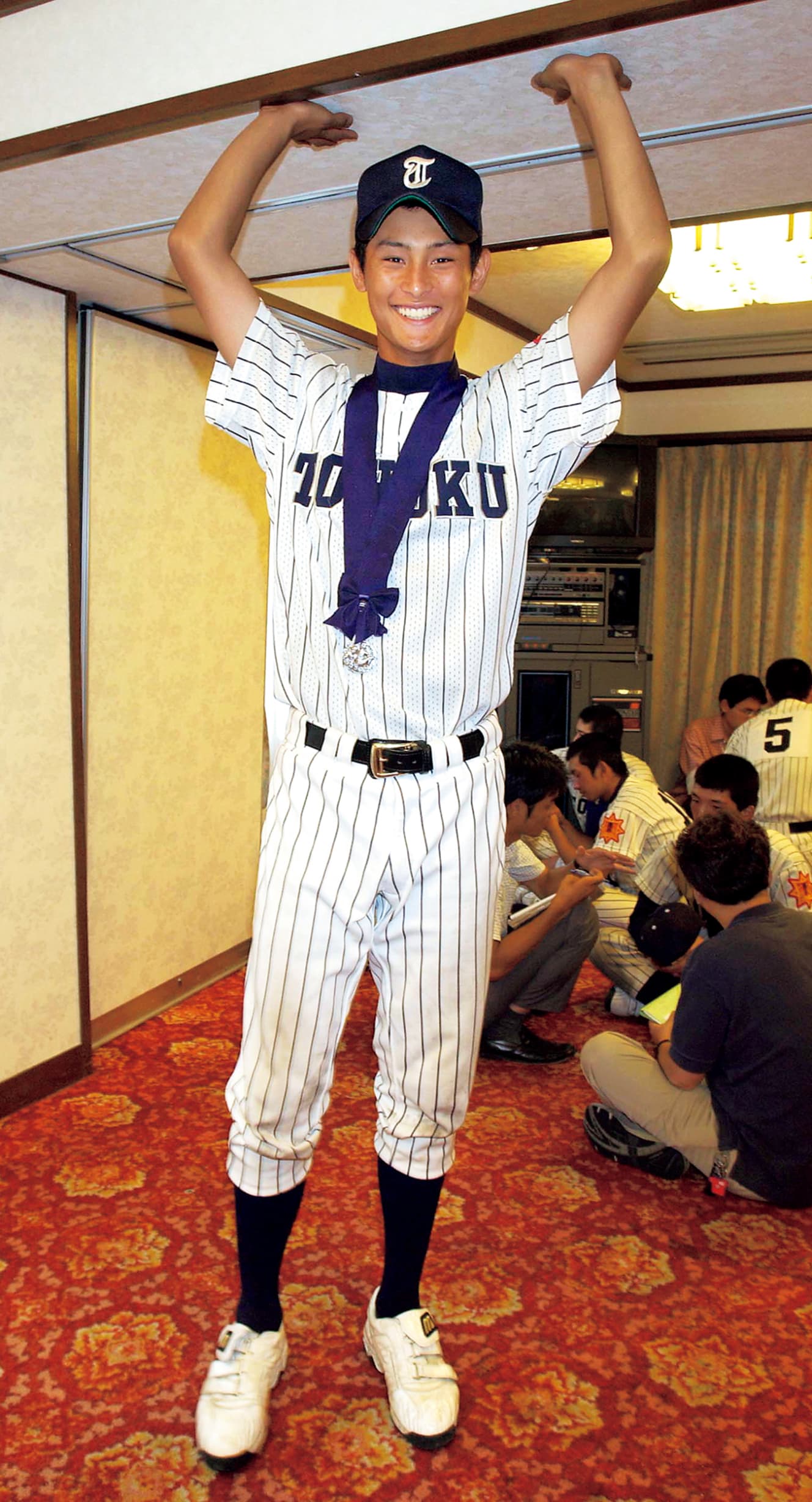Shohei Otani, Yu Darvish, Munetaka Murakami…Samurai Japan Warriors’ “Unknown Era Album
The 30 players for the Samurai Japan team competing in the 5th World Baseball Classic have been officially announced. The list is a diverse group of players that makes one’s heart jump and one’s dream come true. Among them, Yu Darvish, Shohei Otani, and Munetaka Murakami are expected to lead the team. They are here now because they had to be. Their mentors reveal episodes from their younger days that remind us of this.
Just think about winning.
Otani, who made a surprise appearance on January 6 at the press conference where the 12 players were announced, repeated these words over and over again. Otani, who is looking forward to playing a dual role as a pitcher and hitter in Japan’s quest to regain the world’s No. 1 spot, a role that was initially met with mostly negative reaction, has been leaping over the boundaries of baseball common sense since high school. Sports journalist Masahiko Abe recalls.
Masahiko Abe, a sports journalist, recalls, “The first thing that comes to mind when I hear the name Otani is neither pitching nor batting. It is base running. They were sheet batting on the field at Hanamaki-Higashi High School, and Otani hit a fireball right in front of the lights. Normally, he would have overran first base and that would have been the end of it. But Otani ran to second base without hesitation. If you only look at that part, it was a runaway.
The next moment, however, something unexpected happened. The light who caught the ball looked up and returned it to first base. Ohtani was on second base, calmly catching his breath.
After practice was over, I asked Otani why. He said, ‘Before Wright caught the ball, he looked at first for a moment. He’s going to throw to stab me when I’m about to overrun him. I thought so and was able to run without hesitation. I was sure of it. He was able to see that far and act decisively without hesitation based on his conviction. I thought he was an amazing guy. It was the kind of play that pushed the limits of baserunning and showed me that the limits go much further.”
He enjoys and pursues the possibilities of baseball more than anyone else, not to mention his two-fisted approach. That is why he was able to become the player that made Major League Baseball change the rules.
The only thing that Otani said at the press conference mentioned at the beginning of this article was that he was looking forward to working with Darvish, who said, “I’m looking forward to working with him.
Darvish, who joined Nippon Ham from Tohoku High School, won five games in his first year with the team. From the following year onward, he continued to rack up double-digit wins and rose to become the ace of the Japanese baseball world in his early 20s.
He was a late starter in his first year due to a knee injury and made his first-team debut in June, but if that hadn’t happened, he would have been in the rotation from the start of the season. He is such an undoubted talent. My thin body was trained, and in the second half of my second year, the percentage of stretchy balls on my fingers increased, and I stopped having big breakdowns.”
Yoshinori Sato, his former coach at Nippon Ham, recalls this. By the time he was 22 years old, the right-hander, who had shown glimpses of himself early in his career, had impressed even Mr. Sato, who had trained many famous pitchers.

At that time, I stopped trying to get strike counts by aiming for the right course from the beginning. My pattern was to throw straight up the middle and get a count by using my power to get a foul ball, and when I got into a corner, I would throw a slider or a fork to a hard course. Getting foul balls through the bases is a pitcher’s ideal. For a foregone strike, you have to throw a lot of pitches to the same spot, so it’s hard to get a count.”
His goal was not just to get more strikes.
By making the hitter swing the bat, you can see the target and the holes. I would take advantage in this way, and as I got more strikes, I would throw more pitches outside the strike zone. If he could do this, he would not get crushed by four strikes. This is one of the reasons he has lost so few games, and there are not many pitchers who can pitch like this.
I am sure we will see even more mature pitching in this year’s tournament.
One of the pitchers who was giddy at the sight of Darvish, who was a relief pitcher in the second round of the tournament, was Munetaka Murakami, who is the core of the batting lineup. Former Kyushu Gakuin High School coach Hiroyasu Sakai, who oversaw Murakami’s development over the past three years, expressed the sentiments of his student.
He said, “They really are a distinguished group of players. When I first attended the All-Star game, I looked at them with adoring eyes and said, ‘Mr. Yanagida is amazing,’ and ‘That player is great. Darvish and Otani have never met him yet, so they must be giggling now and can’t wait to see him. I can just picture them saying ‘wow’ and ‘wow’ when they get together at camp in Miyazaki.
Sakai described Murakami in high school as “a child with no evil intentions. He had a straight-forward, pure attitude toward baseball, loved to practice, and was always filled with a desire to get better.
When he was a little chubby, he looked like a baby to my eyes (laughs). (laughs) But she was able to work in top gear from the start, no matter what she did. And he never sets goals. He always thought about how he could improve himself, such as becoming a little better or batting better there. I think those things made him who he is, and I don’t think that has changed. I met with him this past off-season, but we didn’t talk about home run records or triple crowns; we talked more about things that didn’t go well, such as his inability to hit a home run in the Japan Series.
There is a possibility that he will be named the No. 4 hitter in this year’s tournament, but knowing his beliefs, you would hope that it will happen.
He is a for-the-team kind of guy. Even in high school, he was more pleased with his fellow players’ hits than his own home runs. This time, too, he wants to contribute, not play an active role. The success is about me, but it’s more about how I can contribute to the team. I want them to hit timely hits, but I also want them to score runs, even if it is a sacrifice fly. Also, as was the case at the Tokyo Olympics, I would like to see him make a breakthrough when the team is down and hit a home run when the game is in the balance. I would like to see them do that.
The only thing the three of them can lead is to become the best in the world.





Photo: Haruki Shimokoshi, Yuji Arakawa, Ryu Kanzaki, Sankei Shimbun (2 photos by Munetaka Murakami)
